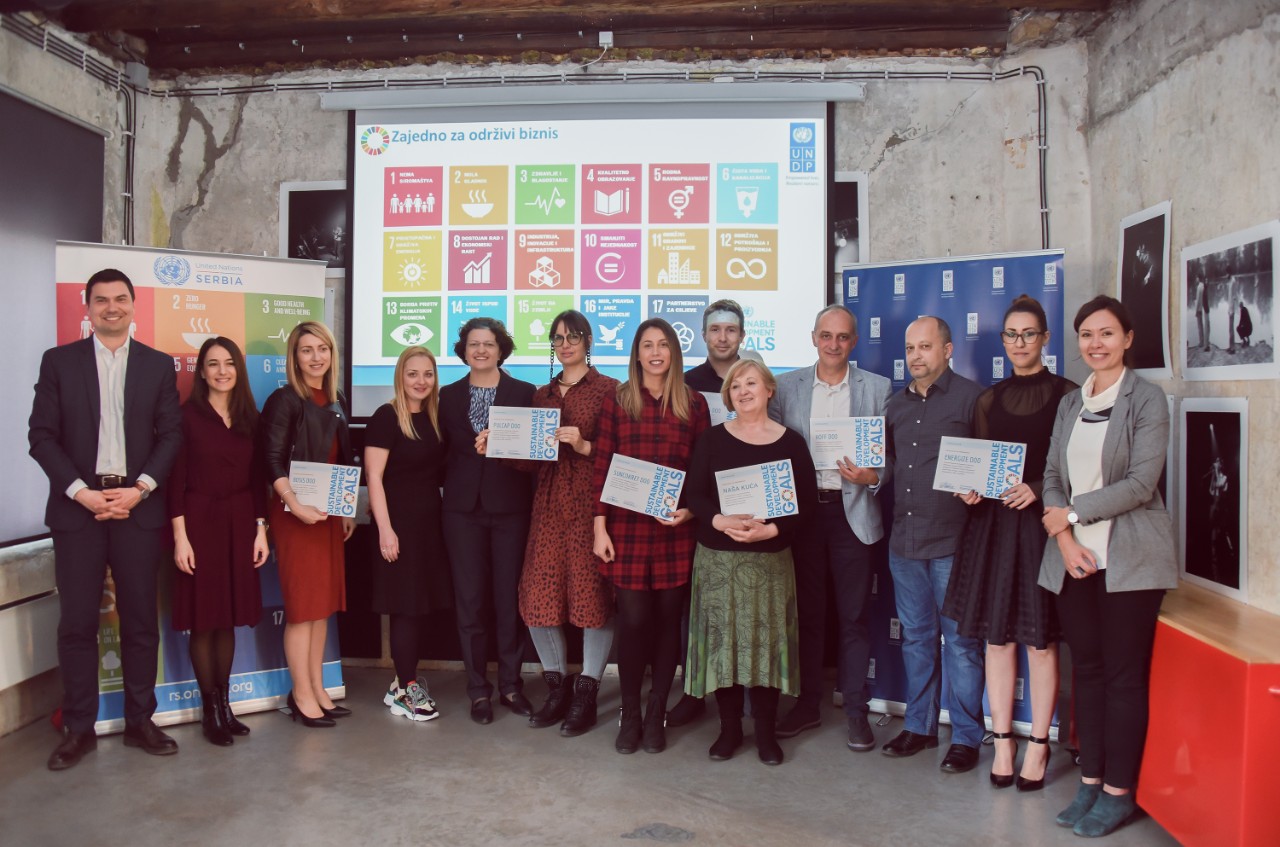 Seven innovative micro, small and medium-sized businesses in Serbia have embarked upon a three months long consultancy programme, which will help them integrate the Sustainable Development Goals (SDGs) into their core business development plans. The programme is financed by the United Nations Development Programme (UNDP) and implemented in partnership with Smart Kolektiv, Serbia’s leading civil society organisation committed to promoting corporate social responsibility and business partnerships in the community.
Seven innovative micro, small and medium-sized businesses in Serbia have embarked upon a three months long consultancy programme, which will help them integrate the Sustainable Development Goals (SDGs) into their core business development plans. The programme is financed by the United Nations Development Programme (UNDP) and implemented in partnership with Smart Kolektiv, Serbia’s leading civil society organisation committed to promoting corporate social responsibility and business partnerships in the community.
The selected companies will receive consulting support in a variety of fields such as social entrepreneurship, innovation, communications, social impact measurement and management, as well as industry-specific advice sought by participating companies. Through a series of workshops and mentorships, the programme will support these companies in growing their business whilst generating positive environmental and social impacts.
“When we say UNDP, we mean partnerships! We mean working together, government, business and civil society for there is no other way to achieve the Sustainable Development Goals. Only by working together can we hope to make development socially inclusive and environmentally sustainable. Better still, by working together all of us can do things differently, innovate our products and services, cross-fertilise each-other’s efforts to enhance effectiveness and create value sustainably in a truly circular economy”, said Steliana Nedera, UNDP’s Resident Representative a.i. in Serbia at the launch of the project.
The launch event was also the opportunity to present the participating companies by highlighting specific SGDs out of the total of 17 universally agreed goals, which these companies will help achieve though their products, services or innovative business models. They are:
Energize d.o.o. from Belgrade, which was founded in 2012. and focuses on solar energy applications for businesses; Suncokret d.o.o. is a healthy, vegan, gluten-free food producer and marketer with a commitment to zero-waste; Bosis d.o.o. produces packaging since 1982. and has a customer base that includes most FMCG companies operating in Serbia and the Balkans; Pulcap d.o.o. markets a unique and innovative formula for the control and treatment of pests in the poultry industry without any harm to poultry, poultry-based foods or the environment; Naša kuća d.o.o. is a social enterprise borne out of the parent association of the same name in 2007. to re-invest profits from a variety of catering, food and beverage businesses into its primary mission of enhancing the social and economic integration of people with intellectual disabilities; Agro Iris d.o.o. supports small scale agricultural producers in rural Serbia to benefit from economies of scale and vertical integration through a collaborative business model allowing them shared access to markets as well as mobile fruit and vegetables drying facility, having thereby in some cases even tripled their income; Hoff d.o.o. produces and integrates other producers of aronia and aronia-based products using organic recipes for the HoReCa sector, looking to innovate production and logistics up to their corporate commitment of zero-waste generation.
They were joined at the launch of the project by Neven Marinović, director of the Responsible Business Forum, Marina Savić, Atlantic Group’s Corporate Communications Director for Serbia and North Macedonia and Uroš Radojević, Sustainable Development Coordinator in Delhaize Serbia, internationally renowned food retailer – all sharing the same commitment to adding SDG values to shareholder value within own core businesses, positive social and environmental spheres of impact.
Source: www.rs.undp.org
 Government of the Republic of Serbia
Government of the Republic of Serbia















 pdf [271 KB]
pdf [271 KB]
Leave a Comment